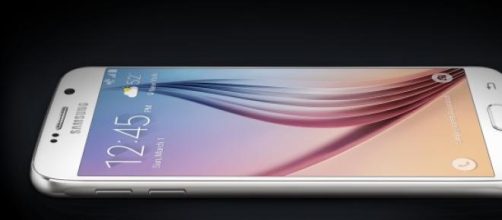Design is at the forefront of the two new flagship smartphones Samsung unveiled this Sunday in Barcelona, ahead of the official kick-off of the Mobile World Congress. The new devices are the Galaxy S6 and Galaxy S6 Edge, set to reach stores on April 10 and challenge Apple's highly successful iPhone 6 and 6 Plus. Some first-hand reviewers, like CNET, are saying the S6 might look too much like the iPhone 6.
"These are the most advanced smartphones in the world, with capabilities no other can match," Samsung's co-CEO JK Shin announced, right after he showed the two new phones.
Galaxy S6 is, in the company's words, "sleek, slim, and elegant." As for the Galaxy S6 Edge is a riskier bet when it comes to design: it features two dual-edge screens.
Both come with Samsung's own processor, the Exynos 7 Octa, and include a feature that had been rumoured, Samsung Pay. It's a mobile payment system that is very similar to Apple Pay, which was launched September of last year and is only available in the U.S. Samsung's take will be launched both in the U.S. and Korea, beginning this summer.
The technical details of the two phones are impressive: quad-HD Super AMOLED display with 1440 x 2560 resolution, 64-bit processor, 3GB RAM, storage capability of 32GB, 64GB or 128GB, LTE wireless connectivity up to 300 Mbps, 16-megapixel rear camera and 5-megapixel front camera with wide-angle selfie function.
The S6 weighs 138g and the S6 Edge a bit less, 132g.
The biggest difference in design is both the curved edges and the metal and glass materials. Samsung's love for plastic has been the subject of criticism in the past, especially for high-end, expensive smartphones. But now, the company has replaced polycarbonate with metal. Last year, when Galaxy S5 was announced, Samsung's product designer Dong Hun Kim justified the use of plastic with the heaviness and coldness of metal; something has changed in the past year, and it was probably the fact that Samsung sales stalled.
The cameras are also being touted as major enhancements, and Samsung compared their quality to rival iPhone 6 and 6 Plus, to Apple's loss. As for Samsung Pay, it's probably the biggest challenge yet to Apple Pay, and it has a differentiator: it works even if the merchants only support magnetic stripes.

